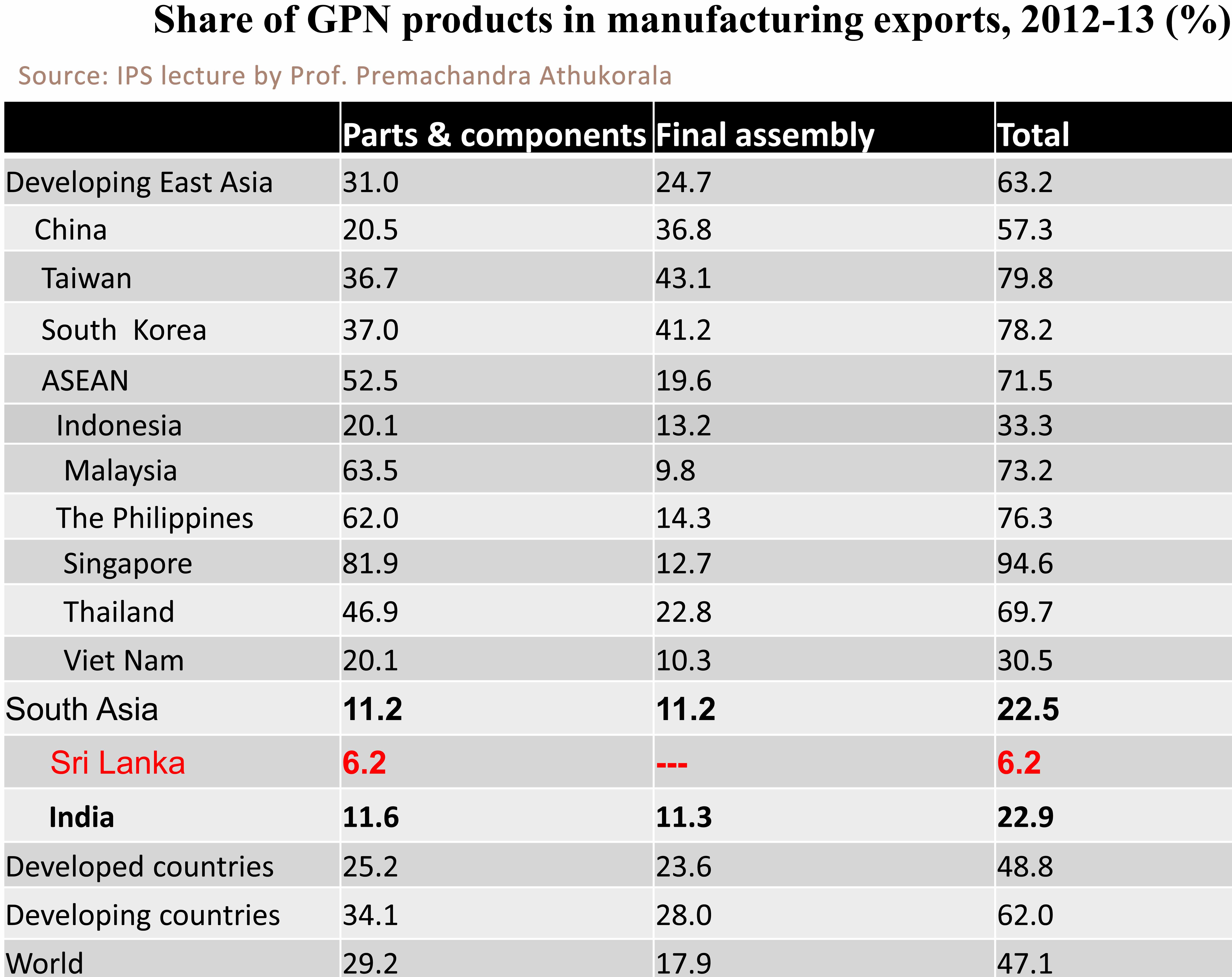buy furosemide online https://www.vitalcaremedical.ca/wp-includes/SimplePie/Content/Type/furosemide.html
These networks focus on vertically integrated global industries such as electronics, electrical goods, automobiles, and surgical equipment and other medical devices. GPN trade typically includes parts and components manufacturing processes and final assembly. Professor Premachandra Athukorala from Australian National University says that inter-country labour cost differences has been a significant contributor to the growing importance of developing countries in network trade. “But that does not seem to explain differences among developing countries in their success in joining global production networks as shown in the graph.” As per the graph Sri Lanka’s total Share of GPN products in manufacturing exports in 2012-13 was only 6.2 percent where as neighboring India claimed 22.9 percent. Developed countries as a whole has recorded a 48.8 percent share where as developing countries has recorded a share of 62.0 percent. Global production sharing often refers to offshoring or slicing the value chain has been the prime mover of the dramatic shift in manufacturing exports from developed to developing countries.
buy grifulvin online buy grifulvin online no prescription
 Professor Athukorala argued that the emerging patterns of GPN are not consistent with the assumption of the standard international trade theory.
In theory, factor intensity of a given product and relative prices of factor inputs (adjusted for productivity) jointly determine which country produces and trade in what product.
“This perdition is based on the assumption that goods are produced entirely in one location; inputs are trapped by national boundaries,” Athukorala said.
“However, factors of production are mile with GPNs.” he said.
He was speaking at an IPS lecture on the theme of Global Production Sharing and Trade Patterns.
Professor Premachandra Athukorala says winning an ‘investment tournament’ by a new host country requires commitment at the highest political level.
Professor Athukorala argued that the emerging patterns of GPN are not consistent with the assumption of the standard international trade theory.
In theory, factor intensity of a given product and relative prices of factor inputs (adjusted for productivity) jointly determine which country produces and trade in what product.
“This perdition is based on the assumption that goods are produced entirely in one location; inputs are trapped by national boundaries,” Athukorala said.
“However, factors of production are mile with GPNs.” he said.
He was speaking at an IPS lecture on the theme of Global Production Sharing and Trade Patterns.
Professor Premachandra Athukorala says winning an ‘investment tournament’ by a new host country requires commitment at the highest political level.Athukorala identifies human capital, service link cost and marketing the country as three determinants in joining global production networks. “Human capital development is partly endogenous to a country’s engagement in GPNs, but the government has to play a major role,” he said. “At the initial stage, availability of trainable unskilled labour which Sri Lanka already has and middle-level (supervisory) technical manpower are key determinant.” Service link cost refers to the costs involved in coordinating production blocks or tasks located across borders. “Service link cost in a given country depends on a whole range of factors,” says Athukorala. “It includes infrastructure and logistics, political stability and policy certainty, property right protection and liberalization of trade and investment policy regimes.” With the rapid expansion of global production sharing, the conventional approach to trade flow analysis, which attributes the commercial value of a product to the last country of origin, is becoming increasingly misleading, Athukorala futher said.

